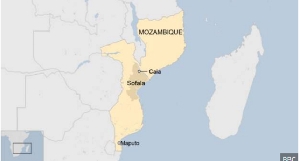Opinions of Friday, 9 August 2013
Columnist: Yeboah, Kwame
Ghana's salvation lies in taking responsibility
Early this week the Bank of Ghana reported that the stock of the country’s public debt increased to GHc39.1 billion (43.9% of GDP) at the end of June 2013 and is still rising. This does not include private debt. The total revenue for the same period was only GHc9.5 billion. This is unsustainable for any developing country. We cannot spend our way into prosperity without revenue. No country has been able to do that particularly when the expenditure is on frivolous things and not on serious investment. Our only salvation lies in taking responsibility of our future.
Ghana is a developing country with erratic tax collection. Much of the employment occurs outside the formal economy thus making transactions difficult to tax. Thus this large and persistent deficits push up interest rates, reduce investment, and create a burden of indebtedness that is difficult for government and the poor taxpayer to bear. Furthermore, the perennial deficits interfere with the effective functioning of our markets at home and abroad and most importantly, they compromise the living standards of current and future generation. Something has to be done now.
For some time now, we have allowed certain irresponsible behaviors to take root in the Ghanaian society to the extent that everybody is expecting the central government to take care of everything in the country, including the personal needs of the citizenry. This is as a result of irresponsible promises during elections and sheer irresponsibility on the part of the citizens. No country can do that and survive and the countries that have seen great strides in development have done so by asking their citizens to take personal responsibility. The government of Ghana should cut down its expenditure or we die as a country.
The persistence of budgetary shortfalls when we are not at war should set the alarm bells ringing that the course the country is on is not sustainable. At the moment we have no plans to pay off our national debt and not even thinking of saving for the future. Furthermore, projected increases in the cost of public sector salaries and government expenditure, as the population grows and economic growth lags and single spines spirals out of control, give cause for further concern. No increases in taxes including that on condoms will be enough for our development if there are no personal responsibilities from all sectors of the population.
The problem is the culture of over reliance on the central government and other people for everything including our personal needs. Every village and town, expects the government to provide them with their development projects without initiating anything. As a result, we have come to rely on our elected officials and other relatives to provide us with everything including ‘chop money’ and school fees for our children. No wonder, some government ministers have started complaining about being forced into corruption.
Parliament should work with the government to stop the practices where scare national resources are used to please people instead of asking them to take personal responsibilities and to reduce expenditure on programs that are not sustainable. People should be made to work for their pay and where possible, the government should devolve responsibilities to the private sector. Government cannot continue to pay full salaries for people who are only partially employed most of the time. The government’s responsibility should largely be policing the system so that the private sector does not take advantage of the people and to establish a social welfare program to take care of the most vulnerable. As a developing country, the government major responsibility should focus on building infrastructure, creating industrial base and encouraging business formation.
The government and parliament should take a look at all areas of government involvement to see where there will be the need to take effective action to save the situation. The following areas are the ones that I personally suggest need action:
1. Government should come out with policies that will make the citizens pay for school fees at the tertiary levels of education. To make it easier for the population, the government should modernized the financial aid system in the country to allow every citizen access to government or private loans to fund their education with the intent of paying back the money after graduation. This will call for bold and stringent measures to ensure that all loans are paid back fully and on time. The money saved by the state should be used to provide educational infrastructure including more vocational and technical schools and universities with modern equipment. These levels of education should be made available to every students who makes the minimum entrance grades. More middle level manpower professional will increase productivity and revenue in the country. We need computers and better technology in every level of education for the modern age.
The state cannot pay for the fees of every school going child and provide the needed modern resources for effective education. We don’t generate enough revenue in Ghana to make every citizen a hanger-on of government resources. We can only build a great country if we all take responsibility for our personal development. The monies generated by the schools and universities should be used in subsidizing the salaries and research projects of the teachers and lecturers so they don’t depend solely on the government.
The government should also establish and encourage private sector participation in grant foundations to fund research projects in the universities. Hard working research professors can increase their remunerations through these grants. The situation where lecturers stop organizing scientific research and only there to present recycled lecture notes and expect the government to pay them enough to live comfortably should be discouraged. The professors should get involved in research projects to help industries to solve productivity problems or come out with alternate ways of production to increase investment. In all developed countries the universities are the sources of ingenious discoveries to fuel industries, and industries pay back with research funding. UTAG should ask its members to stop the perennial strike action and get to work in their laboratories to produce research that industries will want to pay for. The university authorities should ask professors to contribute a percentage of their remunerations in grants to the universities. We all need to contribute our quotas to the successful of our universities.
In addition, the government should build or encourage private participation in colleges to train high paying healthcare and other professionals with easily available jobs because of their need in society. Professional education produces self-reliant people who will be capable of paying back their student loans. We need more middle level health professionals such as physician assistants, technicians, and artisans.
2. The government should modify the national health insurance scheme with increases in premium paid by the citizens to generate the required resources needed for the insurance holders to gain maximum benefits and to sustain the system. No matter the good intentions, government alone cannot take care of the full health needs of the population. If this is successful, the government should come out with a policy to encourage doctors to go into private practice three years after graduation to generate their own income and stop relying on the government for their remunerations. Vast areas of the country need private clinics and personal and family physicians who will know their patients personally and have personal responsibilities for them.
The government can use the revenue saved to strengthen the state sponsored hospitals and health centers. The government should also ensure that doctors in government health institutions stay in the consulting room instead of holding administrative positions that can easily be held by more qualified administrative professionals. In the nineties, only three of the 12 medical doctors in the Upper West Region of Ghana were practicing in the consulting rooms. All the others were administrators manning district health management teams leaving nurses including community health nurses to take care of patients. They are paid because of the skills acquired in their training and the people of Ghana need to enjoy the benefit of that instead of them relegating services they alone can provide to junior level health care professionals and still expect to receive the maximum remunerations. We show you the money, you give us our benefits.
In addition, government should encourage the training of more middle level health professionals such as physician assistants. Physician assistance programs are Masters Degree courses and are just one notch below medical doctors and are capable of manning the health centers and health posts in the rural areas. Entrance qualifications are very simple – anybody with a first degree in the basic sciences is qualified to enter. They usually spend one year in the classroom and another year on their practicals in the hospitals to qualify to practice and will be an efficient supplement to healthcare delivery. We have millions of young men roaming our streets with such qualifications who will jump at such opportunities and will be prepared to pay the fees required.
3. The personal insurance scheme in Ghana is horrible. Payment of car insurance goes into the pocket of insurance agencies who refuse to pay for repairs when insured cars are involved in accidents and have virtually no responsibilities for injured passengers. The result is that government has to take care of all these people in our hospitals. With the increasing number of roadside accidents, the cost is becoming heavier on the government. The government should establish an agency in conjunction with GPRTU that will fight for prompt payment of insurance rebates to all involved in accidents in the country. Failing insurance agencies should be prosecuted.
4. In the absence of war, the military should be distributed to the regions to participate in development projects and fight natural disasters including fire. Too much time locked up in the barracks go into their heads and make the institution unproductive. This is why soldiers find it difficult to positively interact with the civilian population anytime they are let out of the barracks. We need the help of these able bodied men and women in the cities and countryside helping in productive ventures. Soldiers are very good organizers and implementers of projects. They are good fire fighters and builders of roads and bridges and their skill should be utilized for increase prosperity of the country. Students from the second cycle institutions participate in national service all over the country and soldiers can do the same.
5. There should be better use of the prisoner population in the country. Prisoners should be mobilized for rubbish collection and gutter cleaning and other productive ventures in the country. In addition, they can be made to work alongside soldiers in other projects for effective supervision. We have to derive benefits from them whiles we provide them accommodation and food in our prisons.
We should all resolve that the days of free ride are over for the future of the country.
Kwame Yeboah
gyeboah@harding.edu












